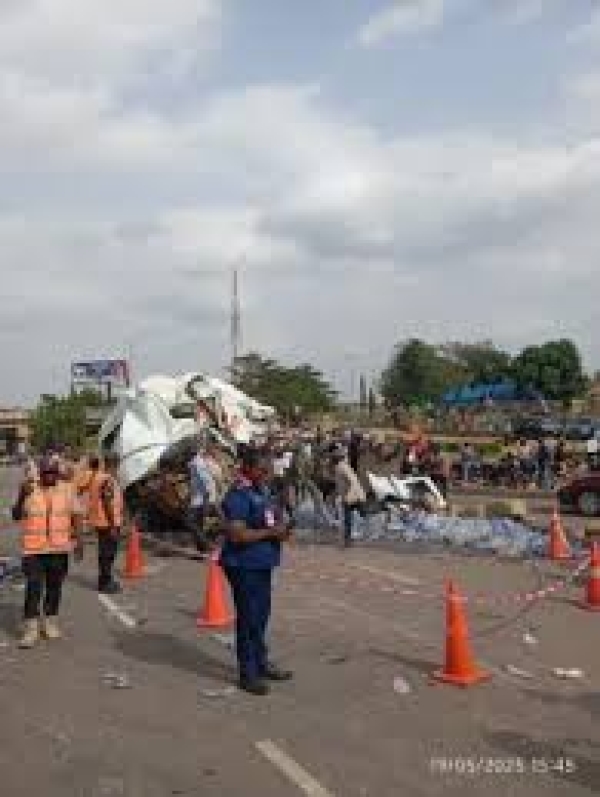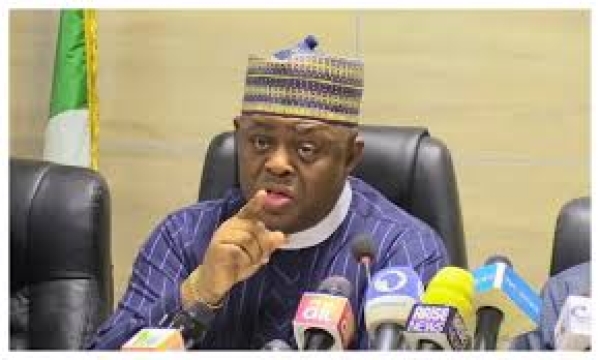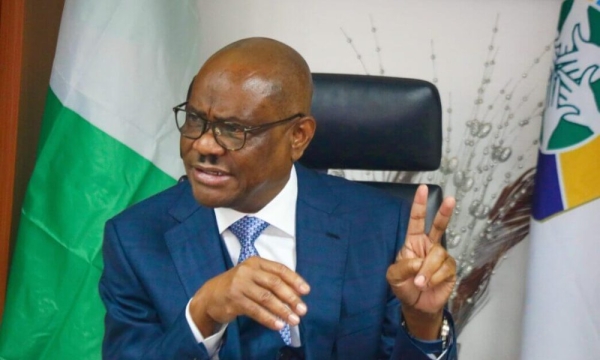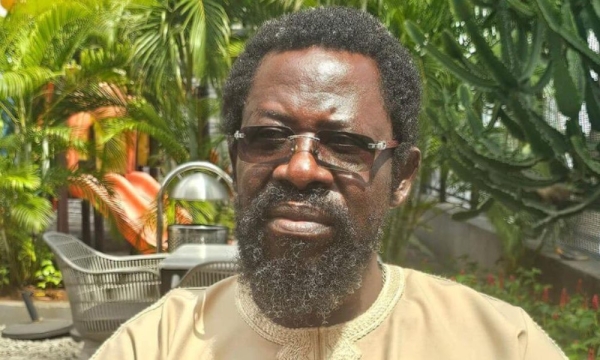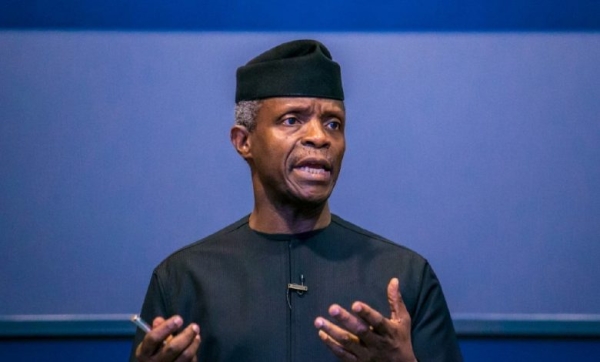TOP NEWS
Reuben's View
Latest News
Search
MOST READ
-
Remember You Are Not Taking Money To Grave – Dangote To Politicians
-
Tinubu Going Back to Lagos – El-Rufai Confirms Atiku, Obi 2027 Deal
-
2027: Peter Obi moving quietly, having underground meetings to unseat Tinubu – Adebayo
-
What You Should Know About ADC – Anti-Tinunu Coalition’s Preferred Party
-
We don’t need your validation – PDP fires back at ex-SGF, Babachir Lawal
-
2027: Anti-Tinubu Coalition Adopts ADC As Platform
-
Peter Obi denies meeting Tinubu in Rome over alleged ₦225bn Fidelity Bank debt
-
Coalition: SDP distances from El-Rufai, says he’s not representing us
-
El-Rufai: We’ll keep Bosun Tijani as minister after sending Tinubu back to Lagos in 2027
-
2027: Tinubu Is The Grandmaster Of Coalitions, Atiku, Obi Others Will Lose Again – APC Secretary
-
Akpabio Gives Out N2bn Cash Grants, Vehicles, Equipment, Scholarships to Constituents
707 times -
[OPINION] Let’s move JAMB’s Oloyede to INEC - Tonnie Iredia
581 times -
Many feared dead in Nyanya-Mararaba road accident in Abuja
576 times -
“Lord behold our tears” – FFK reacts to terrorists feeding newborns to dogs
532 times -
Live Vultures, Tortoises ‘Buried’ Inside – Abia Govt Speaks on Why Otti Has Avoided New Govt House
507 times -
What I Told Tinubu After He Asked Me To Make Peace With Fubara – Wike
482 times -
Nigeria Will Be Worse Than Somalia In The Next Few Years’ – Pat Utomi
481 times -
Hardship: We’re all sitting on kegs of gunpowder – Obasanjo
457 times -
System Glitch: Oloyede Should Be Fired – Farotimi
446 times -
“Justice is at risk” – Osinbajo raises alarm, says Nigeria’s legal profession crumbling under corruption
436 times








![[OPINION] Zulum And The Surge In Insurgency - Reuben Abati [OPINION] Zulum And The Surge In Insurgency - Reuben Abati](https://www.reubenabati.com.ng/cache/mod_bt_contentslider/ad6e52c43f66e3cf537b06ad38aa93b6-8ac05a2894b5e82aeee611e792497153_XL.jpg)
![[OPINION] Defections And Threat Of One-Party State - Reuben Abati [OPINION] Defections And Threat Of One-Party State - Reuben Abati](https://www.reubenabati.com.ng/cache/mod_bt_contentslider/e16351efb50f01266cc28b7377bd5e83-90b1922af682fff68852fa7fab5a4331_XL.jpg)
![[OPINION] Pope Trump, Adebanjo And Other Stories - Reuben Abati [OPINION] Pope Trump, Adebanjo And Other Stories - Reuben Abati](https://www.reubenabati.com.ng/cache/mod_bt_contentslider/a9c28326249471b0c6d135375d9aa6d3-66656381f38ceca0faf1a84f4c1885dd_XL.jpg)
![[OPINION] CBEX Wealth Chasers, NDIC And The Fate Of Depositors - Reuben Abati [OPINION] CBEX Wealth Chasers, NDIC And The Fate Of Depositors - Reuben Abati](https://www.reubenabati.com.ng/cache/mod_bt_contentslider/e7c29125e793371f688b9def0c150948-867aa1263f279020e1b930969b024a70_XL.jpg)
![[OPINION] Pope Francis (1936 – 2025) - Reuben Abati [OPINION] Pope Francis (1936 – 2025) - Reuben Abati](https://www.reubenabati.com.ng/cache/mod_bt_contentslider/9df20a858100040a45e2fc6915d65f41-c0395aa98d8919afead20f020215aa2b_XL.jpg)
![[OPINION] Plateau, Tsiga and Trump - Reuben Abati [OPINION] Plateau, Tsiga and Trump - Reuben Abati](https://www.reubenabati.com.ng/cache/mod_bt_contentslider/d4ff657a4976c08f133a5993db7ca3de-076f7f795e47e1dc74a28ca93d3c698e_XL.jpg)
![[OPINION] The Uromi 16 And The Problem With Nigeria - Reuben Abati [OPINION] The Uromi 16 And The Problem With Nigeria - Reuben Abati](https://www.reubenabati.com.ng/cache/mod_bt_contentslider/848d0c6943c9a9cb7639e8f5640d2cbf-4b585f7414a3fc875b761851d4c5fcd4_XL.jpg)
![[OPINION] Breakfast With The Soludos - Reuben Abati [OPINION] Breakfast With The Soludos - Reuben Abati](https://www.reubenabati.com.ng/cache/mod_bt_contentslider/a98b5c30f61dcb10378fdba9f5e472ab-33b747862875f50d863e709f5955da5d_XL.jpg)
![[OPINION] The Emerging Coalition Against Tinubu/APC - Reuben Abati [OPINION] The Emerging Coalition Against Tinubu/APC - Reuben Abati](https://www.reubenabati.com.ng/cache/mod_bt_contentslider/ddd6416fbaa008a5bcbc568f0e3c8857-02972c9f0dee40a6ad85830afbb49758_XL.jpg)
![[OPINION] Nasir El-Rufai’s Defections: PDP, CPC, APC, SDP - Reuben Abati [OPINION] Nasir El-Rufai’s Defections: PDP, CPC, APC, SDP - Reuben Abati](https://www.reubenabati.com.ng/cache/mod_bt_contentslider/817d1e0c4d951b18f15f406968204870-61d46cc1859ac5d4f70406214a7d7e4f_XL.jpg)
![[OPINION] A World Of Godfathers - Reuben Abati [OPINION] A World Of Godfathers - Reuben Abati](https://www.reubenabati.com.ng/cache/mod_bt_contentslider/f282a08e8e116be2577cc430882505bc-6d66582218d28730d47a7b9a32e18004_XL.jpg)
![[OPINION] Babangida’s Book - Reuben Abati [OPINION] Babangida’s Book - Reuben Abati](https://www.reubenabati.com.ng/cache/mod_bt_contentslider/c8905774fa75570e79f747809f6c142f-4452414e756ce827f8bc4b72b9376062_XL.jpg)


















![[OPINION] Will Professor Oloyede’s JAMB now listen? - Abimbola Adelakun](https://www.reubenabati.com.ng/media/k2/items/cache/f3e895c45a5272ca3f65b6ac4f9ce5f8_XL.jpg?t=-62169984000)



![[OPINION] That mischievous ‘don’t vote, go to jail’ bill - Ikechukwu Amaechi](https://www.reubenabati.com.ng/media/k2/items/cache/a35e3096d56ef73c0aebc04f0aa7eb80_XL.jpg?t=-62169984000)



![[OPINION] How Doctored Images and Viral Falsehoods Are Undermining Trust in Nigeria’s Politics - Isaac Asabor](https://www.reubenabati.com.ng/media/k2/items/cache/25bf35d6f3add701fad1a974964107a1_XL.jpg?t=-62169984000)
![[OPINION] On the Trail of Plateau Killers - Olusegun Adeniyi](https://www.reubenabati.com.ng/media/k2/items/cache/4adf3d197cc818fd607ef25bbbd3fd8a_XL.jpg?t=-62169984000)





























![[OPINION] Will Professor Oloyede’s JAMB now listen? - Abimbola Adelakun [OPINION] Will Professor Oloyede’s JAMB now listen? - Abimbola Adelakun](https://www.reubenabati.com.ng/cache/mod_bt_contentslider/c59ce7b741bcea1905289a89059712d8-f3e895c45a5272ca3f65b6ac4f9ce5f8_XL.jpg)



![[OPINION] That mischievous ‘don’t vote, go to jail’ bill - Ikechukwu Amaechi [OPINION] That mischievous ‘don’t vote, go to jail’ bill - Ikechukwu Amaechi](https://www.reubenabati.com.ng/cache/mod_bt_contentslider/ace591578e507400786884a4eae64df1-a35e3096d56ef73c0aebc04f0aa7eb80_XL.jpg)



![[OPINION] How Doctored Images and Viral Falsehoods Are Undermining Trust in Nigeria’s Politics - Isaac Asabor [OPINION] How Doctored Images and Viral Falsehoods Are Undermining Trust in Nigeria’s Politics - Isaac Asabor](https://www.reubenabati.com.ng/cache/mod_bt_contentslider/3e193975deadc19124f608e324f89c7c-25bf35d6f3add701fad1a974964107a1_XL.jpg)
![[OPINION] On the Trail of Plateau Killers - Olusegun Adeniyi [OPINION] On the Trail of Plateau Killers - Olusegun Adeniyi](https://www.reubenabati.com.ng/cache/mod_bt_contentslider/354d503a9537d113f5e59f399047dbf9-4adf3d197cc818fd607ef25bbbd3fd8a_XL.jpg)



















![Osun Prison Break: FG releases Names of Escaped Inmates [PHOTOS] Osun Prison Break: FG releases Names of Escaped Inmates [PHOTOS]](https://www.reubenabati.com.ng/cache/mod_bt_contentslider/965d51e92f02d2eb337faeb41740f8f5-64c30f6315fc26bddce725f8fc4af83a_XL.jpg)



![[OPINION] A Word For Babachir Lawal - Femi Fani-Kayode [OPINION] A Word For Babachir Lawal - Femi Fani-Kayode](https://www.reubenabati.com.ng/cache/mod_bt_contentslider/dddad76f6e570a6b21d2fa3e60dda568-ef3c3ac64b2a46ff9f20b686c33c5ba3_XL.jpg)



![[OPINION] “If Na Your Papa Dey There Nko?” — One Man’s Street Truth That Nigeria Needs To Hear About Mr. President And Nigeria’s First Son - Isaac Asabor [OPINION] “If Na Your Papa Dey There Nko?” — One Man’s Street Truth That Nigeria Needs To Hear About Mr. President And Nigeria’s First Son - Isaac Asabor](https://www.reubenabati.com.ng/cache/mod_bt_contentslider/585db9c3f81a98d396f138d07653bcf5-1dec3bc1d0c4295cdfffd794ef33277d_XL.jpg)
![[OPINION] How Akpabio Turned Montesquieu’s Separation Of Powers On Its Head - Isaac Asabor [OPINION] How Akpabio Turned Montesquieu’s Separation Of Powers On Its Head - Isaac Asabor](https://www.reubenabati.com.ng/cache/mod_bt_contentslider/199b73a8f27186c86b6df285c5ff446c-8dcfdfed3a7a4f910e15527de4b7d663_XL.jpg)
![[OPINION] Peter Obi, Do Not Be The Desperate Graduate Job Seeker, It Is Presidency Or Nothing In 2027 - Isaac Asabor [OPINION] Peter Obi, Do Not Be The Desperate Graduate Job Seeker, It Is Presidency Or Nothing In 2027 - Isaac Asabor](https://www.reubenabati.com.ng/cache/mod_bt_contentslider/a1a4fa9a3657df7c83e9f87aa03c6eb9-2a5aff3dd0ba92b0e7127f97d75fc752_XL.jpg)
![[OPINION] Nigeria is no Nation of Tribesmen - Kayode Komolafe [OPINION] Nigeria is no Nation of Tribesmen - Kayode Komolafe](https://www.reubenabati.com.ng/cache/mod_bt_contentslider/12d646e29fa577d4b15e9596fc1b3c58-0fc4618c5d6e10f1a439498082de6d68_XL.jpg)









![[PRESS RELEASE] MAN Calls For Urgent Interest Rate Cut To Protect Nigeria’s Industrial Base [PRESS RELEASE] MAN Calls For Urgent Interest Rate Cut To Protect Nigeria’s Industrial Base](https://www.reubenabati.com.ng/cache/mod_bt_contentslider/035f5c1788ab5f188b2a16b77ac6c90d-1add765bb97c3e4d9dd9701bb40d967d_XL.jpg)
















![[OPINION] Make good governance, not voting, compulsory in Nigeria - Jide Ojo [OPINION] Make good governance, not voting, compulsory in Nigeria - Jide Ojo](https://www.reubenabati.com.ng/cache/mod_bt_contentslider/0d6761277dc18a196ba1bc3690f0a7b7-cfa85a1382f04970a08db0511dec49b2_XL.jpg)
![[OPINION] Omolayole’s strike against malaria - Lekan Sote [OPINION] Omolayole’s strike against malaria - Lekan Sote](https://www.reubenabati.com.ng/cache/mod_bt_contentslider/631c36e3edc06a618a6cf2cbd3c35d50-591ae9cc333a02c3b6c135b12b0b5f0a_XL.jpg)
![[PRESS STATEMENT] Yellow Journalism: No Lady is On Trial For Converting To Christianity, Zamfara Gov’t Clarifies - Sulaiman Bala Idris [PRESS STATEMENT] Yellow Journalism: No Lady is On Trial For Converting To Christianity, Zamfara Gov’t Clarifies - Sulaiman Bala Idris](https://www.reubenabati.com.ng/cache/mod_bt_contentslider/c53f7cd68f018f5b2735ab7af4f79e0b-c9f1f999b0826953f1bab072e1b7e4be_XL.jpg)










![[OPINION] Public Service in Nigeria and the Big Questions of Public Administration - Tunji Olaopa [OPINION] Public Service in Nigeria and the Big Questions of Public Administration - Tunji Olaopa](https://www.reubenabati.com.ng/cache/mod_bt_contentslider/e10be765c6e0d5710dda07c2f8d9fca7-e8719f381861e1770ba21692032d5fd6_XL.jpg)
![[OPINION] JAMB 2025: Candidate Complaints And Some Suggestions - Babafemi A Badejo [OPINION] JAMB 2025: Candidate Complaints And Some Suggestions - Babafemi A Badejo](https://www.reubenabati.com.ng/cache/mod_bt_contentslider/13656d1542d5c445464cef98fe47b061-b47b7957ec01e9ad7f1a93a2518f27ba_XL.jpg)







![[OPINION] Zulum And The Surge In Insurgency - Reuben Abati [OPINION] Zulum And The Surge In Insurgency - Reuben Abati](https://www.reubenabati.com.ng/cache/mod_bt_contentslider/5ab1f6dedfa5b4655f99d0bb5a967232-8ac05a2894b5e82aeee611e792497153_XL.jpg)




![[OPINION] Rethinking Death and Dignity: From Fundraising Committees to Funeral Insurance in Nigeria - Sonny Iroche [OPINION] Rethinking Death and Dignity: From Fundraising Committees to Funeral Insurance in Nigeria - Sonny Iroche](https://www.reubenabati.com.ng/cache/mod_bt_contentslider/c2558b6d89f66020b3e1b5ec4f6841d6-a520b54adff5637a2bca1ee5bb4082a9_XL.jpg)







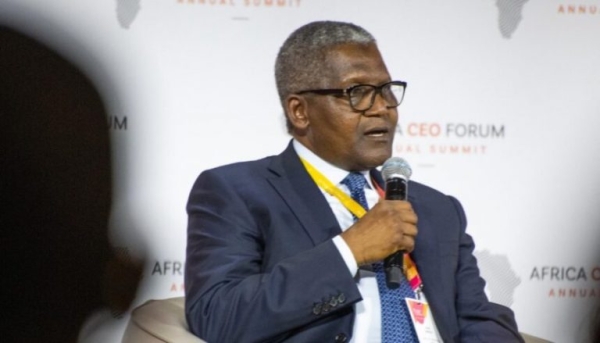
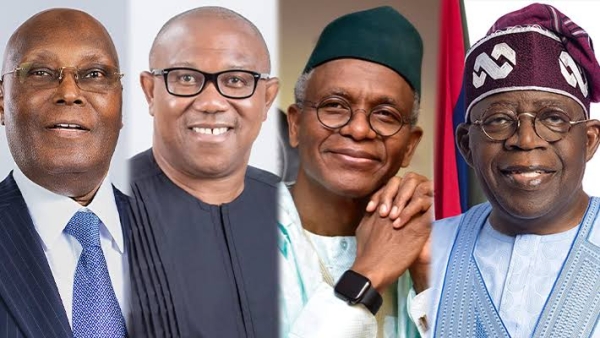
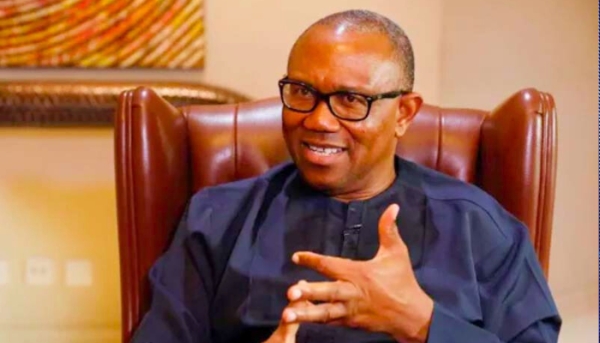
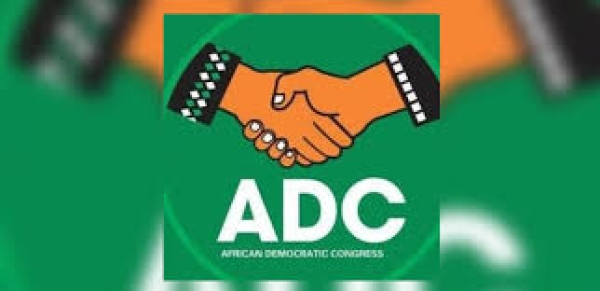
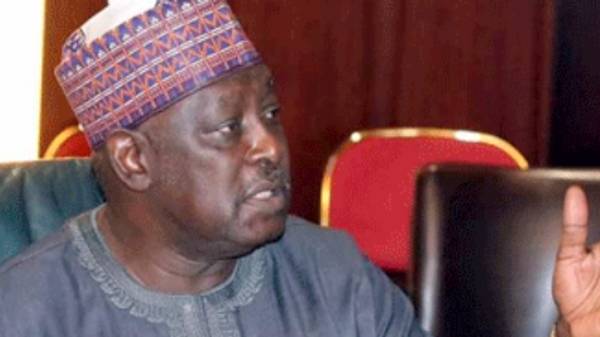

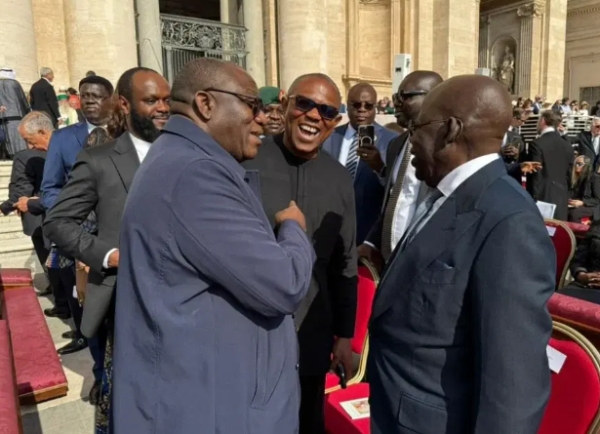
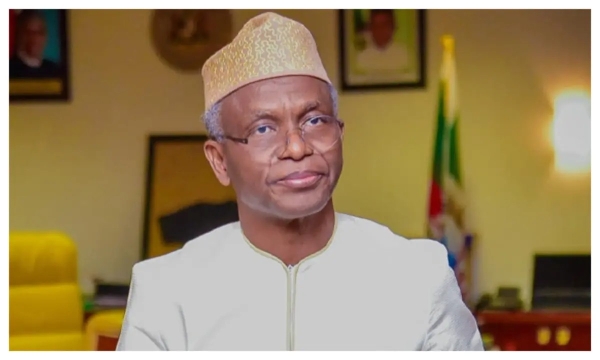
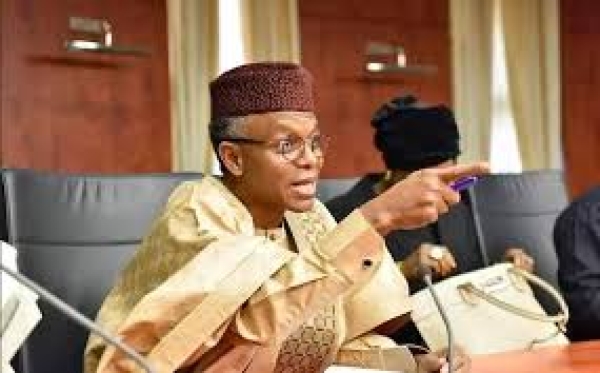


![[OPINION] Let’s move JAMB’s Oloyede to INEC - Tonnie Iredia](/media/k2/items/cache/2c2be4431a5aa89c2ef2c0d42d659e39_XL.jpg)
